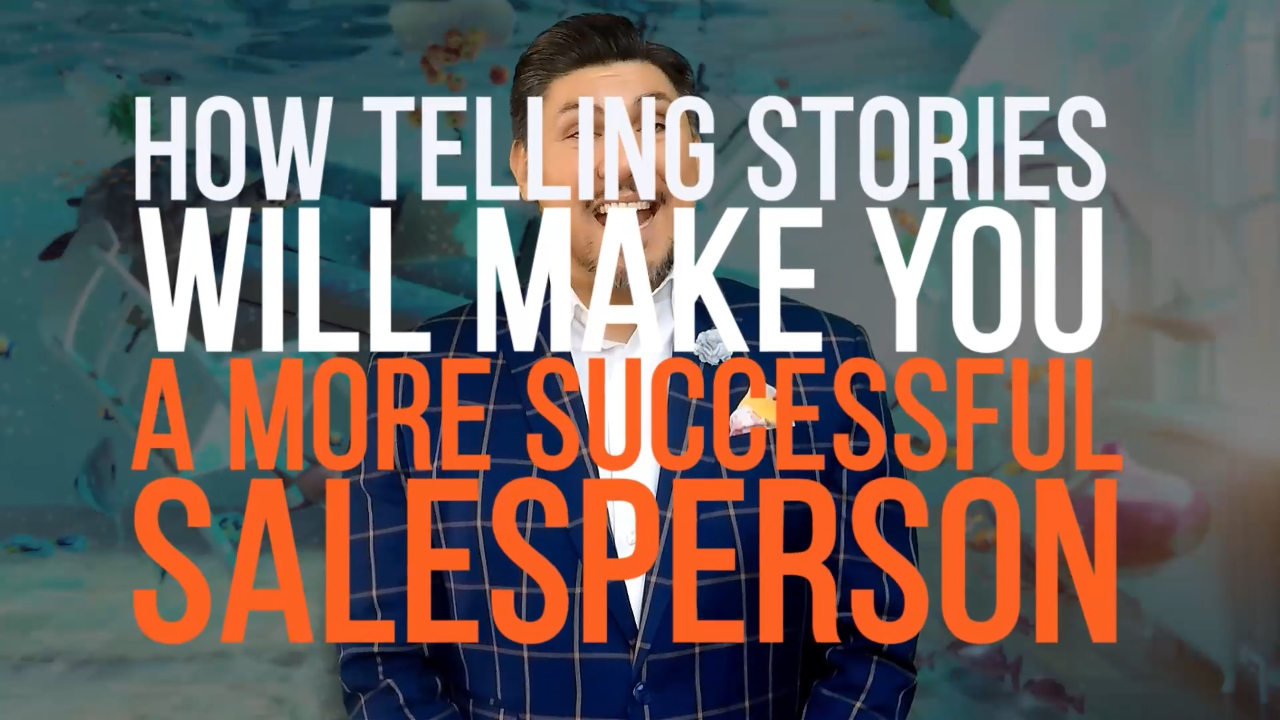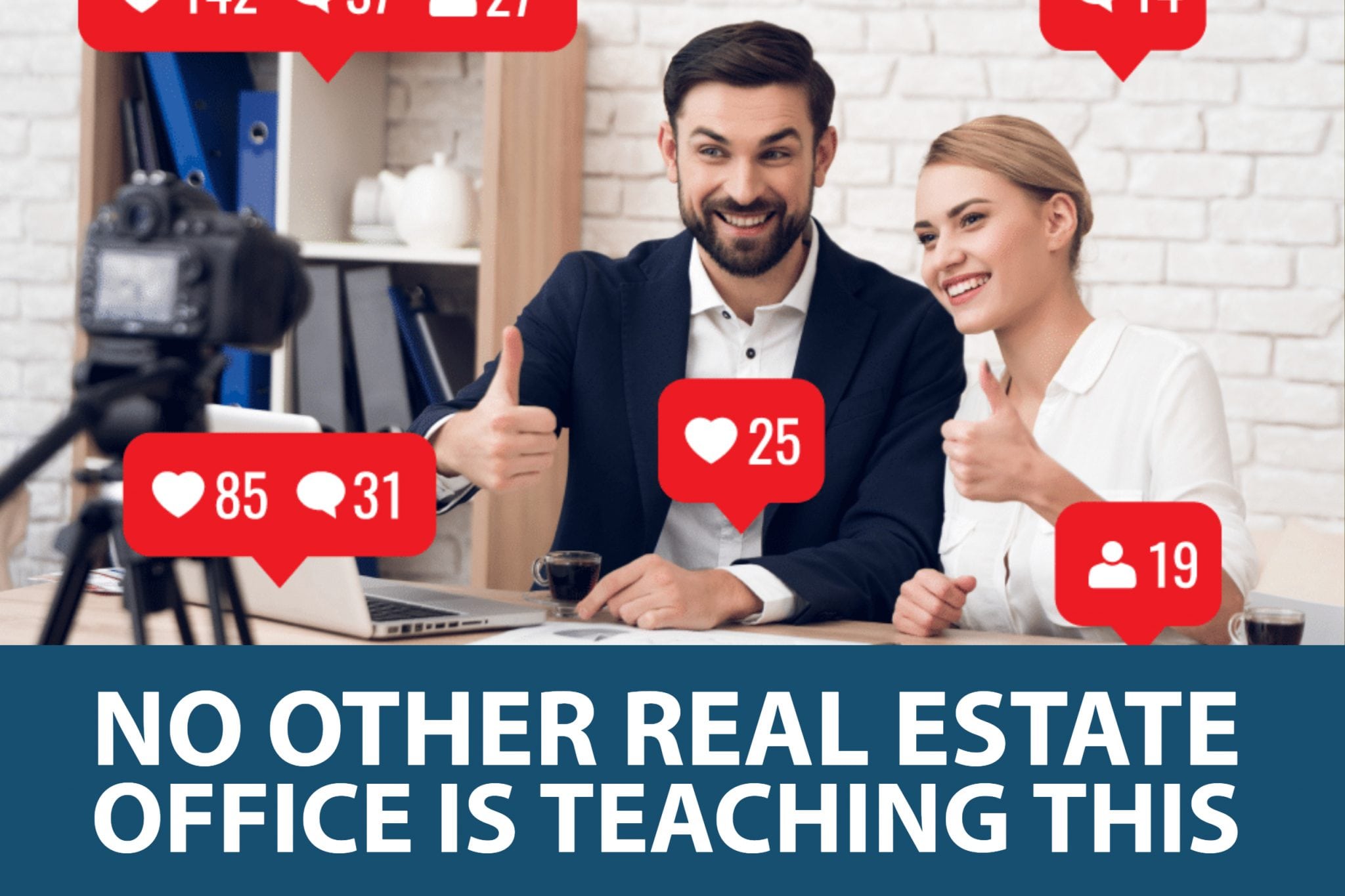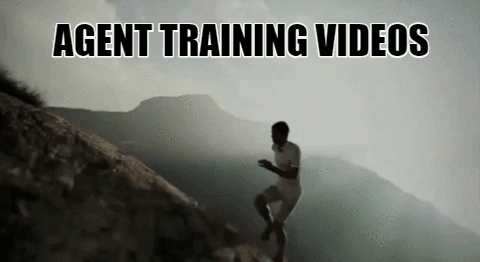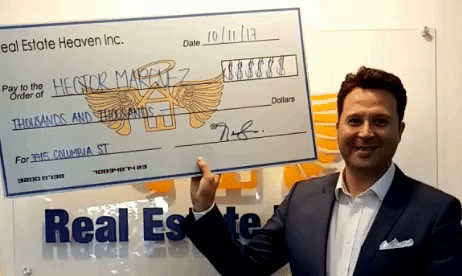
How Telling Stories Will Make You a More Successful Salesperson
A few months back I ran a Facebook ad campaign where I was offering free 3d virtual tours for homeowners and for business owners, now for homeowners these 3d virtual tours are great for insurance purposes, for remodels, for memories and keepsakes, but they’re also really really good for marketing purposes, right, and so I ran this campaign and I had several inquiries and believe it or not I did these 3d virtual tours for homes and for a very prominent hotel over in Century City, but I had one client in particular that reached out to me, now this particular family had purchased a home from me back in 2010 I was representing a bank back then this was a bank foreclosure and they had their own agent right that was representing them but they purchased the home so I was the listing agent at that time, now fast-forward to 2018 they then reach out to me and they say “Hey listen Paul we’re thinking about selling our home we’d love to have one of these 3d virtual tours for us.” I’m excited, I’m thrilled because I’m thinking I’m getting a client I’m gonna get a listing so I agreed to it and I said no problem let’s make an appointment we made an appointment for the weekend it was early in the week probably about a Monday or a Tuesday, right?
Around Thursday I’m contacting them to confirm our weekend deployment and I get a message back from them saying yes our appointment is confirmed, but we’re going to be using the agent that we use who helped us purchase this home so they’re gonna be here with us so just want you to know where we stand now the old me right would have gotten all upset because you know they’re using another agent and probably would have said something to the effect of “hey why don’t you go use the other agent then or go have the other agent do your 3d virtual tour, why should I do it for you?” Instead what I did was I said no problem I’ll be there make sure that the agent is there too so that I can teach them how to implement the 3d model so that I can teach them how to put the 3d model onto their website and onto the MLS. All right now my mentality was look I’m just going to offer value I’m gonna help the agent out who knows where this is going to go on the day of the appointment I contact them to let them know I’m running just a little bit behind schedule and my clients message me back no problem by the way we told our other agent not to come we want to hire you.
All right, now why did that happen, because of all the value that I was delivering to them, right? And they knew that they could count on me for that okay but more importantly here’s why I shared that story with you I just got you emotionally invested in the content that I was sharing with you right and so you as a salesperson you as an entrepreneur have to master the art of storytelling, right, because facts tell but stories sell. Now here’s the deal I’m not saying that there isn’t a time and place for facts because there really is, but people make decisions emotionally and then they justify them logically, so when you are in the middle of a presentation or when you are preparing for a presentation you need to have facts to justify whatever product or service it is that you’re selling but what you want to become is a master storyteller so that you can them emotionally invested emotionally involved and then justify their purchase right and when I say purchase that could be a product but it can also be a service right because if they’re hiring you to represent them for whatever that might be as a real estate agent, as a CPA, as an account, as a lawyer, whatever it might be right if they’re hiring you then they’re purchasing the idea of you representing them, yes or no, yes right so you want to make sure that you get them emotionally invested but then help them feel warm and fuzzy by providing them the facts and the documentation that they need to justify it logically. Now if you don’t know and you haven’t figured it out by now I am a real estate practitioner but I’m also a real estate broker and an entrepreneur so I own a brokerage with over a hundred agents that work for our firm so I do know what it’s like to be an independent contractor, to be a business owner, and to be an entrepreneur, and how to build a business from the ground up and one of the traits that I did have to develop was this ability, this art form of storytelling now. I’m not the saying that you want to become a liar teller that’s not what I’m saying.
I’m saying you want to become a storyteller, now if you’re a brand new entrepreneur if you’re a brand new real estate broker then your story’s gonna be a little bit different right you have to master what your story is depending on the situation so if I’m talking to a client and I’m brand spanking new then my story would be something like listen I just got my real estate license and I’m really really excited about working for you. I’m really really excited about getting this home on the market for you. I’m really really excited about committing all of my time and all of my attention to getting this property sold for you, right, that’s going to be my story now I can also include my prior experiences what I’ve done what my professional career was like but my point is you have to have some type of a story to engage your audience so ask yourself, what is your story, and when I say, what is your story, I’m not saying how many homes have you sold, how many cases have you won, how many clients have you service, because at the end of the day that isn’t going to get someone emotionally involved they really don’t care that I’ve sold over a thousand homes, what they care about is the one home that matters the most to them which is which one, there’s, right, so how are you going to get them emotionally invested into hiring you.
You’re gonna tell them stories right and you want to become a master storyteller and throughout history if you take a look at some of the greatest leaders that our country has had they’ve been good storytellers, you know, Abraham Lincoln was known as a phenomenal phenomenal storyteller. Martin Luther King right talk about a story there right his “I have a dream” speech, was that a story or what, right? Look at the leaders like Elon Musk, now look, love him, hate him, whatever your opinion is of him his story is powerful and the story of how he started multiple businesses and I’m not even talking about his current projects right you take a look at back to when he was 17 years old and starting a video game and then selling bad and then moving on to what eventually became PayPal look it’s all about stories you have to get good at telling your personal brand story, the story of your company, right? You have to tell them the story of how you’ve helped other clients and have other services and we’re going to talk about that a little bit and I’m going to give you some tips on how to become a better storyteller and how that’s going to make you a more successful salesperson/entrepreneur.
Tip Number #1
You have to know what purpose the story you are telling is going to serve, in other words, what is the final outcome, so if I have a client that is telling me that they do not want to reduce the price on their property even though I know that they are $200,000 overpriced then my story and what I’m going to share with them should be stories telling them about other clients that have reduced their price to get the property sold, right, so ask yourself what is the end goal of the story that I’m going to share with them right now and that means that you’re gonna have to you know you’re gonna have to borrow from your experiences, you’re gonna have to borrow from the experiences of other people around you, you’re gonna have to borrow from experiences from your company or your firm, you’re going to have to borrow experiences from stories that you’ve read.
The point is you have to know what the end goal is in mind, if we’re talking to a buyer right now I’m talking about real estate again if you’re talking to a home buyer and I want them to increase their price because I feel like they’re making their offer too low right my story would be me telling them about prior experiences where I’ve had other clients who missed out on a home just because they didn’t want to increase their price by $2,500 just because they didn’t want to increase their price by $10,000 which was really only gonna impact their mortgage payment maybe an extra 60 to 70 dollars a month which meant that they might have to avoid eating out once or twice a month and so that’s the reason Mr. or Mrs. buyer I’m going to suggest that you go out and make this offer ten thousand dollars more than what you were thinking about asking because I’ve had clients in the past who didn’t listen to me all because they didn’t want to stop eating out once or twice a month and it cost them their dream home which is why I’m gonna recommend that we stick to the price that I’m suggesting that you make that offer at, sign right here, right, that’s what I’m talking about so you want to make sure that you have these stories and again story teller not liar Teller so once I’ve told them the story and I’ve got them emotionally involved I’m then going to justify that logically so then what I’ll do is I’ll probably pull out the comps (competition) to show them that homes similar to the one they’re thinking about making that offer on have indeed sold for ten thousand dollars more than what they were thinking about making that offer at, right, so again if you get them to invest emotionally and then justify that decision logically, right?
Tip Number #2
Close after each story, now what do I mean by this what I mean by this is after you’ve gotten the client emotionally invested based on the story you’ve told you have to get used to going in for the signature, going in for payment, or going in for the appointment, that is a part of the process right and understand that the larger the decision the more times you will have to close that may mean that you may have to tell more than one story okay and again stories sell, facts tell, you get them emotionally involved invested and then you justify their decision logically by showing them the facts. So a possible scenario or conversation that I’m having with a client that is considering hiring me to list their home would probably go something like this, I see so mister/missus seller what you’re telling me that is is that you believe that your home is worth hundred and fifty thousand dollars more than that of the four or five other homes that are up for sale currently within a quarter-mile radius, is that correct? Great!
Now let me share with you one of my recent experiences, I just had a client who had a home very similar to yours that just invested about a hundred and fifty thousand dollars in upgrades, they put new carpet, new paint, they just installed a water softener, and and a brand new HVAC unit, and what we’v discovered was that even though they put in a hundred and fifty thousand dollars into their home to make it more sellable all they did was bring it up to sellable standards in sellable conditions and ultimately they weren’t able to that 150,000 dollars back, in fact we ended up selling the home right for about the same price as everybody else around them which is why I’m going to suggest that we stick to our guns and list our price at eight hundred and fifty thousand dollars, can I get your signature right here so that I can start the marketing process for you? Thanks! Sign right here. Something to that effect right, stories, and then I’m going to pull out the comparables and I’m going to justify it again. Now every situation is gonna be a little bit different and I realize that that same story might not apply every single time so don’t start using that one because it may not apply to your scenario but you get my point. The idea here is to explain recent experiences that are applicable to what it is that they’d like to accomplish right, every situation is gonna be a little bit different and something that applies so you know you want to use these sparingly right I’m not saying that the entire presentation should be one big anecdote after the other that’s not what I’m saying I’m saying that you want to use it when it is applicable and when it makes sense and when it feels natural right don’t just start telling stories just for the sake of storytelling okay so tip number two make sure that you close after every story that you tell.
Tip Number #3
Get your audience engaged using their senses, now what do I mean by that, so recently I had a property that I was representing for sale it was a great home and what I asked my clients to do was to go out and put candles from Bath and Body Works right, and so I wanted these holiday scented candles and I said every time I have an open house every time I have a showing please make sure that I have a minimum of six different holiday scented candles placed throughout the house right, and we went and we held the open house and it was on a weekend and I’ll never forget there was a family okay, mom, dad, two children, with a young girl and they walked in through the open house and the very first thing that this little girl said was “Mommy, daddy I want this house, buy it, it smells like Christmas,” that family ended up purchasing that home, okay? What did I just do? I just used a story that engaged you and it got you emotionally invested and it made you use your senses you could almost smell that holiday scent you could almost smell Christmas.
This can work both ways right, so if I have a client and I’ve noticed that their client has a bunch of cats and I can smell there’s certain odors I may tell them about the time right that I had to sell a bank repo that smelled of cat urine and I had to go out and hire a company like Surf Pro to come in and oxidize the house so that there weren’t any sense so that it could sell faster, right? Those are different, those are two completely contrasting stories, both two things that I actually went through and they’re both genuine and they’re authentic and they help get the point across so the last and final tip when you’re using these stories is try to use your their senses, try to get them involved not only emotionally but almost to the point where they’re using their senses so that they feel like they’re really immersed in the entire in the entire story there you have it those are three quick tips on how to be a better storyteller and ultimately a better salesperson, better entrepreneur, because even as an entrepreneur you’re gonna have to sell people on your vision okay, and so if you have any comments or questions make sure that you participate in in the conversation below I’d love any comments that you might have on this training or any questions that you might have or if you’ve got any great stories to tell by all means share those stories. I monitor the comments and I will respond back to you. Alright, thank you to our sponsor again mortgage heaven dot.com make sure you visit their site I look forward to hearing about your success.











